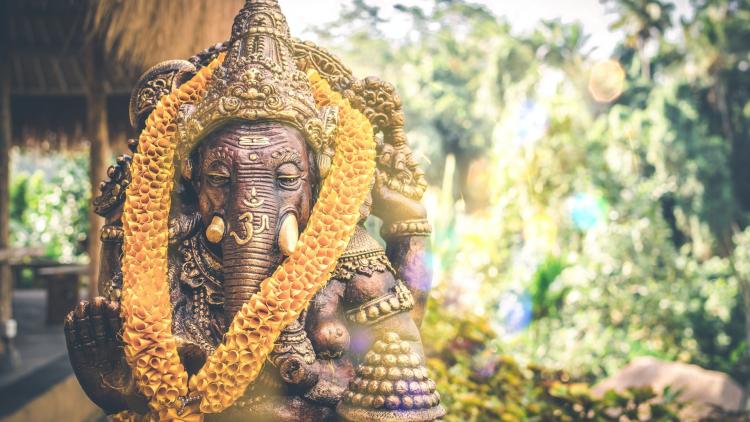R240 The Politics of Spirituality in South Asia

Key information
- Status
- Module not running
- Module code
- 155906013
- FHEQ Level
- 5
- Credits
- 30
- Department
- Department of Religions and Philosophies
Module overview
This module provides a comprehensive introduction to the development of multiple religious traditions within specific cultural and historical contexts of South Asia. It explores in particular the many links that exist between the different religious beliefs and practices that emerged within South Asia’s rich religious landscape. In order to achieve this, the module content clusters around a selection of themes, including the interaction between religion and state, religion and society as well as the emergence of distinct communities and their respective interactions. In many ways, these themes define the history of religion in South Asia: they help us understand the historical developments that shaped the convergence in practice or allows us to pinpoint the forces that tore them apart.
The lectures that form part of his module throw light on the historical, political and cultural context within which Hinduism, Buddhism, Jainism, Sikkhism and Islam established themselves in South Asian societies, The module identifies the factors that led to the production of their beliefs and practices and charts the ways in which they established within such a diverse religious and social environment. It examines the links between the traditions, their roles in society and state and their strategies of survival in evolving political and economic landscapes. Its perspective is essentially dynamic: it analyses the forces that propelled South Asian religious thought from one period to another, starting with the ritual preoccupation of the Vedic communities and ending with secular enmeshment in the 20th and 21st centuries. The modul integrates what students have learned in year 1 of their degree in the introductory modules through the provision of new, interconnected, perspectives that investigate relationships, processes and innovation among the religious traditions of South Asia and their roles in society.
Objectives and learning outcomes of the module
On successful completion of this module a student will be able to:
- demonstrate solid general knowledge about the religious geography, history, and cultures of South Asia in the studied periods
- analyse the interplay of cultural, social, and political factors in the development of religious traditions in South Asia
-
identify and explain the most important parameters for the historical development of religions in South Asia
discuss the dynamic relationship between multiple religious traditions in South Asia - apply insights, theories, and methods from multiple scholarly disciplines to the study of religions in South Asia
Scope and syllabus
The module offers a detailed overview of South Asian religious history from the earliest religious scriptures and ascetic traditions to colonial and post-colonial developments. It focuses on the following religious traditions in their historical and cultural interaction:
- Hinduism
- Buddhism
- Jainism
- Islam
- Sikhism
Method of assessment
Two essays (each 3,000 words) and one exam (3 hours).
Disclaimer
Important notice regarding changes to programmes and modules


